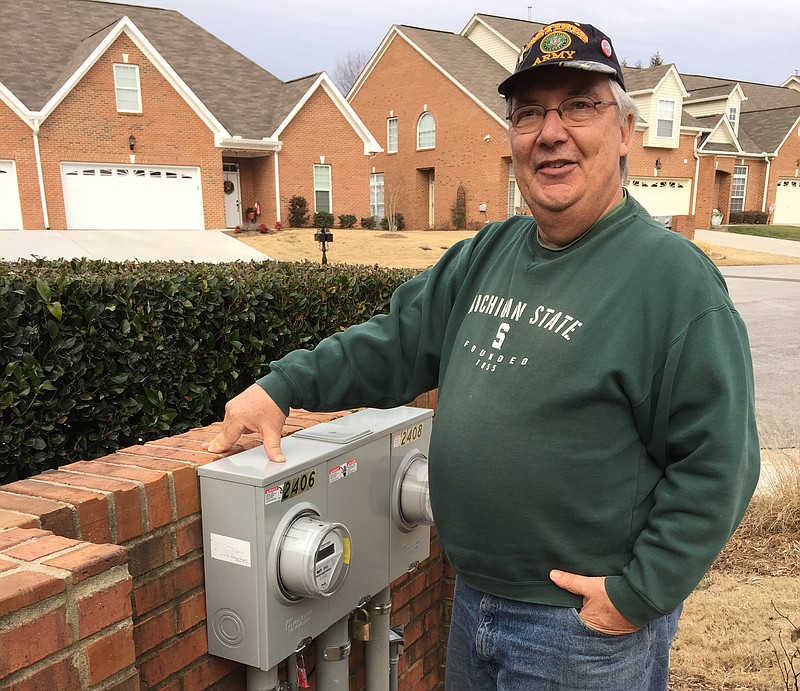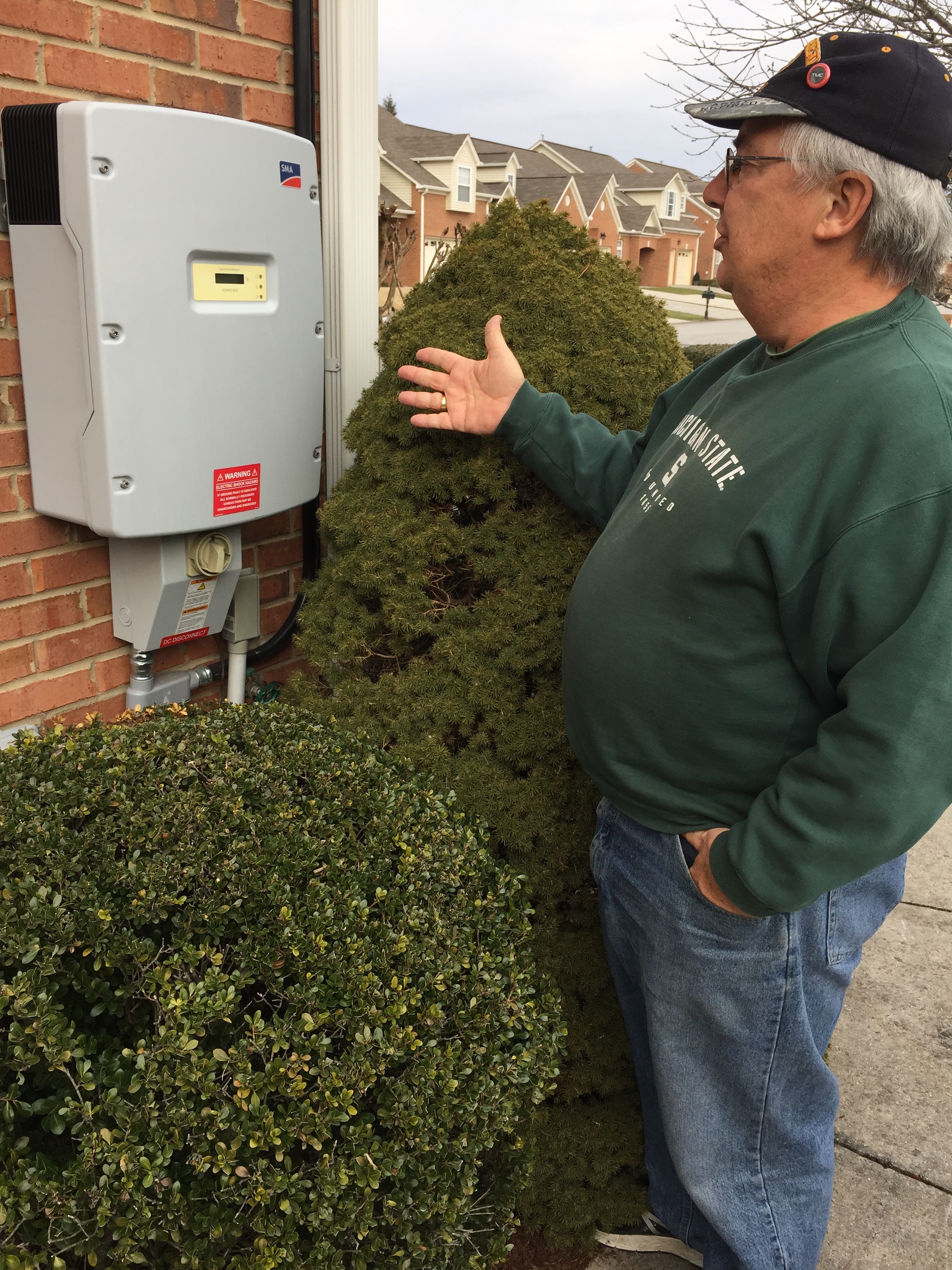Just because he has solar panels on the roof of his house and an electric car in his garage, retired Army Sgt. 1st Class Charles "Chip" Monk doesn't want you to think he is a "tree hugger."
It's all about efficiency, he says. And thrift.
Monk, 67, gets a charge (pardon the pun) out of creating electric power from the sun, which he sells back to TVA at the rate of about $4 a day. On a year-round basis, that pretty much covers his electric bill.
Sometimes he even runs a surplus. At the moment, TVA owes him $139.45, he says. Every day, Monk reads a meter that counts the kilowatt hours produced by his rooftop solar panels and records the numbers in a spreadsheet.
"I haven't had an EPB bill for four years," says Monk, who heats his 2,600-square-foot home with a gas furnace.
And because his Tesla Model S sedan runs on electricity, he also hasn't spent any money for gasoline on his personal car in years.
In a couple of weeks, Monk's wife, Sandy, will swap her gas-powered Nissan sedan for a new Tesla Model 3, perhaps the first sedan of its kind to be delivered in Chattanooga.
The Monks will be able to recharge each of their Teslas in their home garage in about four hours. Tesla superchargers they can use for free are located at the Chattanooga Metropolitan Airport, 4 miles from their East Brainerd house.
It doesn't take much imagination to see the future in the Monk household.
Today, the price of entry to the energy self-sufficiency club is a bit prohibitive. Chip Monk says the solar panels installed on his house cost about $20,000. He figures the panels will pay for themselves in about seven years (from purchase), although the industry standard is about eight to 11 years.
The Teslas are pricey, too. A Tesla Model S starts at $68,000, and a smaller Model 3 starts at about $35,000. Common upgrades can push those prices up by tens of thousands of dollars. Electric cars such as the Chevy Bolt and Nissan Leaf are available for more modest sums.
TVA's Green Power Providers Program allows homeowners and small businesses with solar panels to sign a 20-year contract to sell power to the utility for a few cents per kilowatt-hour.
View other columns by Mark Kennedy
When solar panels and electric cars become more affordable, it might be a no-brainer to equip most new homes with solar arrays.
Anthony Roden, owner of Tennessee Solar Solutions here, says his company has grown from one employee to 28 in the past decade. Today, some spec homes in Chattanooga are being built with solar panels already installed, he said.
The object, Roden said, is to reach "grid parity" - the point at which homeowners no longer have an electric bill. He said a 30 percent federal tax credit also makes solar equipment more cost effective. For example, the tax credit would lower the net cost of a $20,000 solar array to about $14,000, he said.
For his part, Monk said he wanted a solar-powered home for about 30 years before realizing his dream five years ago.
He said several variables go into determining how efficient a home solar system will be. For example, he discovered that his East Brainerd home has a South-facing orientation and a roof pitch that's optimal for solar panels.
Monk said he has had no maintenance costs on his 30 solar panels. The instructions call for cleaning off the pollen once a year, but he hasn't bothered.
Roden says the people sometimes wrongly assume that solar panels are too expensive.
"If you can afford a power bill, you can afford a solar array," he said.
And that's what they call a game changer.
Contact Mark Kennedy at mkennedy@timesfree press.com or 423-757-6645.


